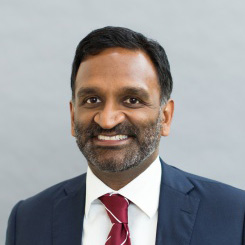As a former disarmament policy analyst for the Holy See in New York and in Vatican City, I was recently asked to comment on its position on nuclear disarmament by the National Catholic Register; the article can be found here. The reason for raising the issue now was a Nobel laureates’ peace conference in Rome hosted by former Soviet leader Mikhail Gorbachev.
The article describes the Holy See’s views as mainly expressed by Canadian Senator Douglas Roche, who also served on the Holy See delegation to several United Nations disarmament meetings. I would like to use this post, however, to expand on some aspects that the article only mentions briefly.
While the Holy See has the official status of a state, it does not pretend to be a state like any other; its status is primarily meant to protect the religious freedom and independence of the pope. So it cannot be said that the Holy See has any kind of political expertise in the disarmament field. After all, it hasn’t had to disarm itself and Vatican City is protected by Italian, NATO and US forces in the area. The Holy See’s mission here is to serve as a moral conscience, not as a political example to other states.
The Holy See seeks to exercise its moral authority in matters of war and peace, offering, over the centuries, its good offices to mediate a peaceful resolution of conflicts between states. But the Holy See’s position is not “pacifist”, i.e. avoiding war at all costs. For the most part, it recognizes the larger moral and strategic aspects of international relations while trying to avoid unnecessary slaughter and destruction.
The NCR article correctly notes that in 1982, Pope John Paul II linked the moral acceptability of deterrence to progress towards nuclear disarmament; this linkage is also the basis for the 1970 Nuclear Non-Proliferation Treaty. Yet the background for this linkage – the real possibility of nuclear war between the United States and the Soviet Union – is neglected. In fact, most observers (Gorbachev included) now admit that the nuclear arms race contributed to or accelerated the demise of the Soviet Union, and hence the passing of the threat of a nuclear war between two ideological foes.
When John Paul II granted some moral acceptability to nuclear deterrence, he did so in the face of extreme opposition from European and American pacifists, including some Church leaders who thought the US, UK and France should disarm unilaterally. Incredible as it may seem, the possession of nuclear arms by Ronald Reagan and Margaret Thatcher was considered a greater threat to peace. Vatican officials, however, were more sensible and aware of the menace posed by the USSR.
The Soviet Union is no more. As a result, the US and Russia did agree to greatly reduce their nuclear arsenals. September 11, 2001 changed strategic calculations, and especially nuclear proliferation concerns. North Korea and Iran are the most worrying of these, but there are many others, including the spread of nuclear materials to terrorist groups. But, once again, the no-nukes movement has decided to make the US the focus of its disarmament rally.
Perhaps this is because most of the nuclear abolitionists live in societies that allow them to criticize their governments openly and freely. There are no North Korean or Iranian equivalents of Senator Roche. In fact, the nature of the political regime should be more worrying than the possession of nuclear weapons. To think about the nature of such regimes is not to automatically praise one’s own over others; rather it is the beginning of political wisdom.
The opposite tendency is to deny all political responsibility and cede such authority to tyrants and terrorists. International relations would then be a field for “realist experts” who shun moral reflection and argue that “anything goes” in war. It would also describe mainstream foreign policy thought in the West.
In our age of moral relativism, it is tempting to say no regime is better any other, but it is also nonsensical. Instead, we need more reflection on what makes a good society and how a good society should carry out its foreign relations. No country can live in splendid isolation from today’s threats, just as no country can ignore today’s globalized economy. In international relations as in other human endeavors, the challenge is carrying out our moral responsibilities without losing our soul.

